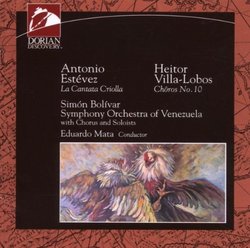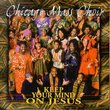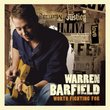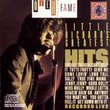| All Artists: William Alvarado, Antonio Estevez, Heitor Villa-Lobos, Eduardo Mata, Simón Bolívar Symphony Orchestra of Venezuela, Idwer Alvarez Title: EstÚvez: The One Who Sang With The Devil (La Cantata Criolla); Villa-Lobos: Choros No. 10 Members Wishing: 0 Total Copies: 0 Label: Dorian Recordings Release Date: 8/31/1993 Genres: Special Interest, Classical Styles: Opera & Classical Vocal, Historical Periods, Modern, 20th, & 21st Century Number of Discs: 1 SwapaCD Credits: 1 UPC: 751758010123 |
Search - William Alvarado, Antonio Estevez, Heitor Villa-Lobos :: EstÚvez: The One Who Sang With The Devil (La Cantata Criolla); Villa-Lobos: Choros No. 10
 | William Alvarado, Antonio Estevez, Heitor Villa-Lobos EstÚvez: The One Who Sang With The Devil (La Cantata Criolla); Villa-Lobos: Choros No. 10 Genres: Special Interest, Classical
You're going to love this piece. If you're a fan of really cool choral music in a populist vein--stuff like Carmina Burana--then this is the music for you. Estevez was a Venezuelan composer, and this 30- minute-long cant... more » |
Larger Image |
CD DetailsSynopsis
Amazon.com You're going to love this piece. If you're a fan of really cool choral music in a populist vein--stuff like Carmina Burana--then this is the music for you. Estevez was a Venezuelan composer, and this 30- minute-long cantata tells the story of a cowboy who beats the devil himself in a singing contest by calling on the saints to keep his opponent rooted to the ground until dawn. Aside from the folk influence, the scene of the actual contest is set as a series of variations on the Dies Irae Gregorian chant from the Requiem Mass--only with maracas in a kind of samba rhythm! It's more fun than you can possibly imagine without having heard it, and this performance by a brilliant local lineup is simply perfect. The choral-music find of the decade! --David Hurwitz Similarly Requested CDs
|
CD ReviewsExcellent 11/11/1998 (5 out of 5 stars) "'Cantata Criolla' by Antonio Estevez (a venezuelan composer) resumes the authentic sounds of venezuelan plains. The combination of the choir as a narrator, the soloists as 'Florentino' (a cowboy) and 'el diablo' (the devil) as the principal actors and the orchestra creating the environment is wonderful handled. It's a supreme music work and, I think, the most important work of venezuelan 20th century music. It's a "must-be-listened"..." Great recording of great repertoire Richard Zencker | Scottsdale, AZ USA | 10/04/2005 (5 out of 5 stars) "The Estvez is definitely the find of the decade, if not century. It seems we would have no knowledge of this were it not for Eduardo Mata. He is sorely missed. His series of recordings with the Simon Bolivar Orchestra is outstanding, and perhaps never more so than here where he is presenting unknown repertoire. The recording is fantastic, but so is the music. Worth noting is how the Dies Irae is combined with native elements in ways beyond description! By the way, the Villa-Lobos is good too. But imagine a disc where it's not the main draw!" Great recording of music that deserves to be better known David Ira | California, USA | 02/05/2007 (5 out of 5 stars) "I recently participated in a performance of this piece. It is dramatic, tuneful, colorful music, featuring complex Latin rhythms. A crowd-pleaser that is becoming better known in this country and deserves to be much better known. The recording fully does it justice, with great performances by soloists, chorus, and orchestra."
|

 Track Listings (4) - Disc #1
Track Listings (4) - Disc #1


